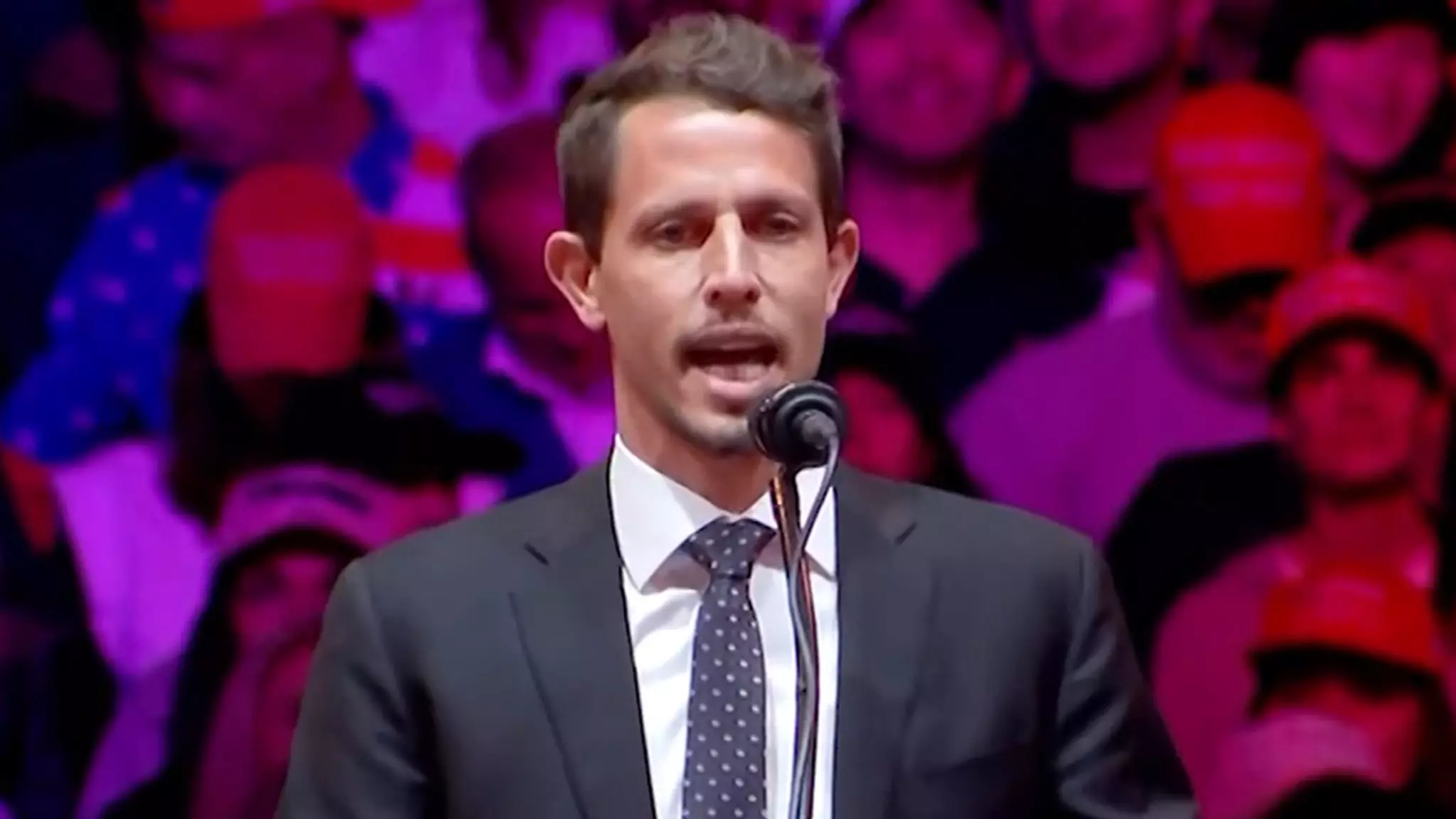In a whirlwind of laughter and outrage, comedian Tony Hinchcliffe has found himself at the center of a firestorm following his performance at Donald Trump’s Madison Square Garden rally. Known for his edgy humor, Hinchcliffe took to the stage with a set that was emblematic of his willingness to push boundaries. However, during an unexpected moment, he made a joke about Puerto Rico that has drawn significant backlash from various public figures and the general public alike.
Hinchcliffe’s routine attempted to navigate the often treacherous waters of race and ethnicity, aiming to elicit laughter from an audience that was both mixed and varied. While some of his jokes landed well and were greeted with applause, others flopped spectacularly, notably one, in which he quipped that there’s a “floating island of garbage in the ocean—it’s called Puerto Rico.” The punchline seemed to leave the audience in a state of confusion, revealing a palpable tension in the air. As the apprehensive laughter faded, even Hinchcliffe appeared to realize he had crossed a line, showcasing a surprising moment of self-awareness.
In the wake of Hinchcliffe’s comment, voices of dissent emerged swiftly, particularly from notable political figures. Tim Walz, who is vying for the vice-presidential position alongside Kamala Harris, pointed out the undeniable reality that Puerto Ricans are American citizens who contribute to society in myriad ways, including military service and tax contributions. His critique underscored a growing sentiment that jokes predicated on stereotypes or derogatory assumptions about entire communities do little to foster unity and may instead perpetuate harmful narratives.
Soon after, Alexandria Ocasio-Cortez joined the conversation during a live Twitch stream. She highlighted the insensitivity of Hinchcliffe’s remark, emphasizing the need for comedians to exercise responsibility in their humor, particularly when it touches on marginalized communities. Such statements resonate with a wider audience that demands accountability for actions that may reinforce prejudice, inviting deeper conversations about the impacts of comedy on societal perceptions and relations.
In an attempt to defend himself, Hinchcliffe remarked that his comedy encompasses a wide range of targets and that he aimed to poke fun at various groups, not exclusively at Puerto Ricans. His rebuttal highlights a frequently debated issue in comedy: Can offensive humor be justified if it is directed at multiple groups? While some argue that it is an essential aspect of artistic expression, others assert that it can result in real-world implications, contributing to systemic oppression and racism.
The fallout did not end with political comments. Celebrities including Ricky Martin and Bad Bunny took to social media to voice their displeasure. Their reactions, reflecting both personal and communal sentiments, underscore the potential consequences that public figures face when they navigate contentious topics without thoughtfulness.
The incident serves as a reminder of comedy’s dual-edged nature in contemporary society—while it can serve as a social commentary and a release valve for frustrations, it can also alienate and offend. As Hinchcliffe’s comments reveal, pushing boundaries can yield significant backlash, particularly when those boundaries intersect with identity and lived experiences. The challenge for comedians moving forward will be to strike a balance between provocative humor and cultural sensitivity—a task that proves increasingly difficult in today’s hyper-aware landscape.
As the dialogue around Hinchcliffe’s jokes continues, it emphasizes the responsibility that comes with the art of comedy, serving as a call to examine how humor relates to power dynamics and representation within society. The incident at Madison Square Garden is far more than just a moment of on-stage banter; it encapsulates a significant cultural discourse surrounding race, identity, and the role of humor in public life.


Leave a Reply